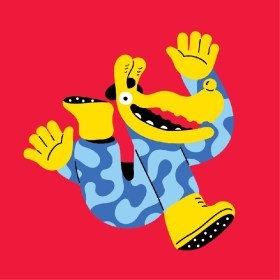The fictional character of Sherlock Holmes is so well-known that many people still believe he was a real person. When the Arthur Conan Doyle stories first appeared in print, serialised in The Strand magazine in the 1890s, the London Post Office received thousands of letters every week addressed to the world’s first consulting detective at 221B Baker Street.
Since then, there have been many representations of Holmes and his companion Dr John Watson on stage and screen. The 1930s films starring Basil Rathbone and Nigel Bruce set the tone for future interpretations; more recently the Sherlock series with Benedict Cumberbatch and Martin Freeman brought Holmes and Watson to life for a new audience.
Sherlock Holmes: The Last Act is set in 1916. Dr Watson has died and Holmes returns to London for the funeral of his dear friend. This much is a new fiction, an extension of the Conan Doyle stories. The show opens with Holmes centre stage, with just a chair and a gold quilted smoking jacket, paying tribute to Dr John Horatio Watson as ‘my conductor of light’.
British actor Nigel Miles-Thomas is superb as Holmes, capturing all those best-known characteristics and adding a touch of reflection and sensitivity. This Holmes is most akin to the wonderful portrayal by the late Jeremy Brett in the 41 episodes of the 1980s television series. And, like those, the show does not shy away from Holmes’ addiction to morphine and cocaine.
On stage we see the great man reflecting on his life and the major cases he solved with Watson. All the best known stories get a mention, from The Adventure of the Speckled Band to The Adventure at Abbey Grange and, of course, The Hound of the Baskervilles and The Final Problem.
Holmes recounts conversations with Watson, seamlessly taking both parts as he swaps between characters. Indeed, throughout the 60-minute show, Miles-Thomas takes on some 14 characters and effortlessly brings each one to life with its own accent, diction and characteristics. The Scottish housekeeper, Mrs Martha Hudson; the hard-working policeman, Inspector Lestrade; Holmes’ older brother Mycroft, a member of the Diogenes Club, ‘the strangest club in London’; and, of course, his arch-enemy Professor James Moriarty, ‘that malign presence, an unholy force’.
Holmes recounts highlights from their time at Baker Street: the bullets he shot into the wall to make the mark VR – Victoria Regina – because ‘I was bored, it was a wet afternoon’, their many successful cases and the murderer he let go free. He also laments his unhappy childhood on the North York Moors with a violent father and the three years he spent travelling after his apparent death and thus ‘free from the shackles of being Sherlock Holmes’.
Sherlock Holmes: The Last Act is beautifully written by Holmes scholar David Stuart Davies and is full of colourful and evocative references. There is even a mention of Conan Doyle’s personal beliefs with the reference to consulting ‘a priest or a Spiritualist’, something often ignored.
Read: Performance review: Future Cargo, Adelaide Fringe Festival
This intimate and revealing play is brilliantly brought to life on stage by Nigel Miles-Thomas. It really is a masterclass in the presentation of an erudite one-person theatre piece. Highly recommended!
Sherlock Holmes: The Last Act
Goodwood Theatre and Studios
Tickets $25-$30
Sherlock Holmes: The Last Act will be performed until 7 March 2024 as part of the Adelaide Fringe Festival.





